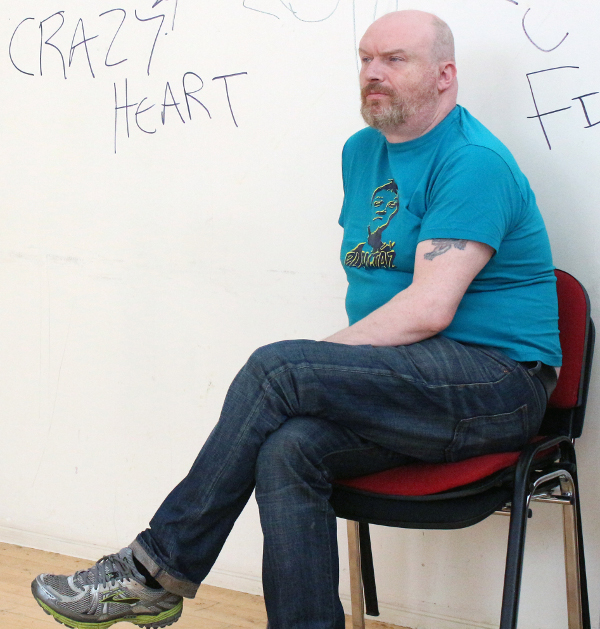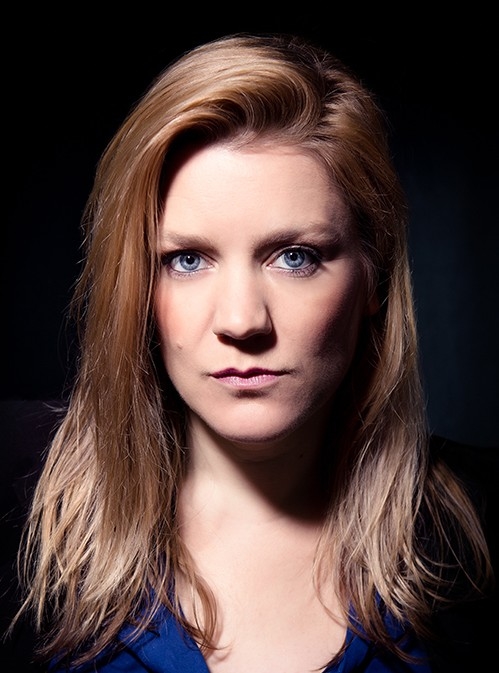Mark Ravenhill: The secret's out at Edinburgh
The ‘in-yer-face’ poster boy has two productions at this year’s Edinburgh Fringe, including a new collaboration with ”Secret Theatre”

© Tom Gladstone
The latter, he says, was sparked by reading Sean Holmes’ tub-thumping manifesto for Secret Theatre, which labelled the traditional structures of British theatre "corrupting" to the work they are supposed to serve. This piqued Ravenhill’s interest.
"I went to see the [Secret Theatre] shows and really liked the youth and invention and freshness of what they were doing," he tells me by phone from the Lyric, "so I contacted Sean and said I'd really like to do something."
Handily, the opportunity for Secret Theatre to take two shows to Edinburgh then arose, and Holmes invited Ravenhill to write one of them. The result, Show 6, is billed as an 'explosive thriller', though Ravenhill admits this sounds "a little too Dan Brown" for his tastes.
The play was inspired by a passage in Naomi Klein's The Shock Doctrine about members of the Pinochet regime in Chile who adopted the children of their victims.
"It's a thriller in the way that something like Oedipus Rex is a thriller," the writer explains, "it's about somebody who starts to find out they're not who they think they are so they go on a journey to find the truth about who they are."
The fact Ravenhill's authorship was made public ahead of the production opening marks a shift in Secret Theatre's approach; previously, all details remained under wraps until the audience were in their seats.
"They realised that the 'secret' bit was such a strong thing that it rather overrode everything else," says Ravenhill. "It's actually the development of an ensemble company and the inventiveness of what they're doing that really lies at the heart of Secret Theatre."
He's quick to add that, initially, he liked the idea of his name remaining anonymous. I wonder if this is because people tend to come to his work with preconceptions?
"When we first did a reading of Sarah Kane's Crave for Paines Plough, it had been written under a pseudonym, because she was really keen to see what would happen if an audience came without preconceptions. At some stage I'd like to do something similar."
The mention of Kane prompts a (no doubt unnecessary) reminder that Ravenhill's breakthrough play was Shopping and Fucking in 1996, a sexually explicit parable on consumerism that placed him squarely alongside her as a leading member of the 'in-yer-face' generation of writers.
"In the mid 90s something exciting did emerge but we never set out to be a group, there was never a shared manifesto. It's human nature to look for patterns and to label things."
“We still have a ‘good Muslim/bad Muslim’ mentality”
“We still have a ‘good Muslim/bad Muslim’ mentality”
We move to a discussion of Ravenhill's other play a the Fringe this year, Product, a monologue he first performed in 2005 that is being revived starring Olivia Poulet, best known for her work in TV comedy The Thick of It.

"I thought it was a great idea to change the gender of the actor performing it, and Olivia is a really good actress – she puts a very different angle on it," Ravenhill enthuses.
Product centres on a Hollywood script executive trying to persuade a young (unseen) starlet to appear in a movie about a woman who falls for a suicide bomber. Ravenhill thinks there is something more "insidious" about it if the script executive is a woman manipulating another woman.
The play, he hopes, says as much about our take on international conflicts – including that currently unfolding in Gaza – as it does about the culture of Hollywood.
"There are some good jokes to be made about Hollywood, but it talks more widely about the way we can't help but think of these very complex conflicts in terms of narrative cliches."
As an example he cites Western attitudes to Islam in the wake of 9/11. "Over ten years on, we're no closer to having a nuanced appreciation [of Islam] – we still have a 'good Muslim/bad Muslim' mentality."
Ravenhill delivered last year's inaugural address at the opening of the Fringe, a rousing call to arms for artists at the festival to, in the words of Scottish post-punk outfit Orange Juice, "rip it up and start again".
"Edinburgh seems to get more expensive every year but somehow the numbers [of participants] keep going up," he says. "In the speech I was praising the spirit of all those Edinburgh companies that are not waiting for permission from somebody to do their work but will rather beg, borrow and steal to get their show on."
Ravenhill clearly feels a kinship with this spirit of artistic entrepreneurship that Edinburgh fosters, and recalls feeling "validated" when he first took work there as a student nearly 30 years ago. "There's something about that festival atmosphere that encourages you to offer something new – the familiar and reassuring are very out of place."
With this in mind it seems wholly fitting that Ravenhill, at 48, is still at the centre of this world-leading celebration of the new. Although he may have told us in that opening address to "ignore" those of his generation and to "make it up as you go along", his instruction to be "challenging, disruptive, naughty, angry" and "irresponsibly playful" is one he himself still follows to the letter.
And with new international collaborations on the horizon – currently he's writing a libretto for the Norwegian National Opera – as well as a post Edinburgh tour of Show 6, his influence is in no danger of waning, however much he might wish it.
Show 6 runs at Roundabout, Summerhall (venue 26) until 17 August; Product is at Assembly Hall (venue 35) until 20 August
FOR MORE ON EDINBURGH 2014 VISIT WHATSONSTAGE.COM/EDINBURGH-FESTIVAL












